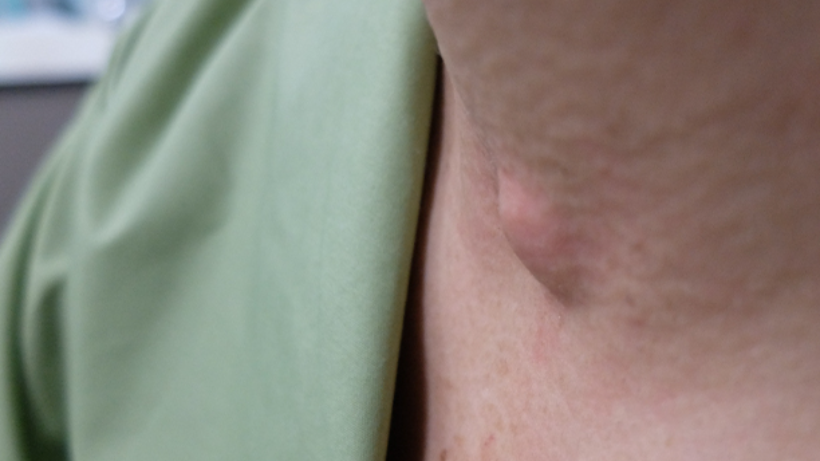
Thyroglossal Cyst: Can Surgery Be an Option?
28 Jun, 2022
 Healthtrip Team
Healthtrip TeamOverview
A thyroglossal duct cyst develops when the thyroid gland in your neck produces hormones and leaves excess cells behind while developing in the womb. These excess cells can develop into cysts. These kinds of cysts are mostly congenital, i.e., they've been present since you were born. In several cases, these small cysts may not cause any problems. However, large-sized cysts may cause breathing or swallowing problems. Hence, they should be removed, if necessary. Here we’ve discussed the surgery for removing such cysts. Keep reading to learn more.
When should you seek surgery?
The lump due to the presence of a thyroglossal cyst may not be visible for several years or more after you are born. In some situations, you may not even notice a lump or be aware of the presence of a cyst until you develop an infection that causes the cyst to enlarge.
Transform Your Beauty, Boost Your Confidence
Find the right cosmetic procedure for your needs.

We specialize in a wide range of cosmetic procedures

Other common thyroglossal duct cyst symptoms include:
- Speaking in hushed tones
- Having difficulty breathing or swallowing
- Hole in your neck near the cyst through which mucus drains
- Feeling tender in the vicinity of the cyst
- Skin redness in the vicinity of the cyst
Only if the cyst becomes infected will there be redness and discomfort.
Also, Read - Thyroid Cancer Symptoms & Early Signs
The reason behind developing such cysts:
Your thyroid gland normally develops at the bottom of your tongue and goes through the thyroglossal duct to make its home in your neck, just below your larynx (also known as your voice box). The thyroglossal duct then disappears before you are born.
When the duct does not entirely disappear, the cells from the remaining duct tissue can create holes that fill with pus, fluid, or gas. These matter-filled pits can eventually develop into cysts.
Also, Read - Thyroid Cancer Survival Rate
How is the surgery performed to remove such cysts?
The surgery is performed in a hospital or surgical center. It is a non-inpatient surgery. This means you will return home the same day. The time it takes to do the surgery varies. Throughout the procedure:
Most popular procedures in India
Total Hip Replacemen
Upto 80% off
90% Rated
Satisfactory

Total Hip Replacemen
Upto 80% off
90% Rated
Satisfactory

Breast Cancer Surger
Upto 80% off
90% Rated
Satisfactory

Total Knee Replaceme
Upto 80% off
90% Rated
Satisfactory

Total Knee Replaceme
Upto 80% off
90% Rated
Satisfactory

You're lying on your back.
Anesthesia is administered so that you fall asleep and to prevent you from feeling pain.
To reach the cyst, the surgeon makes an incision in your neck.
The cyst is removed by the surgeon. Your surgeon will also eliminate any leftover thyroglossal duct material. Any sinus tracts that are present, are removed. These are the aberrant routes that connect the cyst to the skin's surface. In addition, the surgeon may remove aberrant thyroid tissue and a portion of the hyoid bone.
After the surgery, the wound is closed with stitches or a special surgical glue that binds the skin together.
Also, Read - Thyroid Cancer Symptoms In Females
Are there any complications related to the surgery?
As per our experts, the benefit of this operation has outweighed its complications. However, these are rare. The following are the cons that you may suffer after a Sistrunk operation.
- Failure to completely eliminate the cyst. This could imply that you require additional surgery.
- Surgical hazards in general, such as bleeding and infection,
- Allergic reaction to the anesthetic.
How can we help with the treatment?
If you are in search of treatment for cyst removal in India, we will serve as your guide throughout your medical treatment and will be physically present with you even before it begins. The following will be provided to you:
- Opinions of expert physicians and surgeons
- Transparent communication
- Coordinated care
- Prior appointment with specialists
- Assistance with hospital formalities
- 24*7 availability
- Arrangements for travel
- Assistance for accommodation and healthy recovery
- Assistance in emergencies
Our team is dedicated to offering the highest quality health trip and care to our patients. We have a team of highly qualified and devoted health professionals that will be by your side from the beginning of your journey.
Wellness Treatment
Give yourself the time to relax
Lowest Prices Guaranteed!

Lowest Prices Guaranteed!





